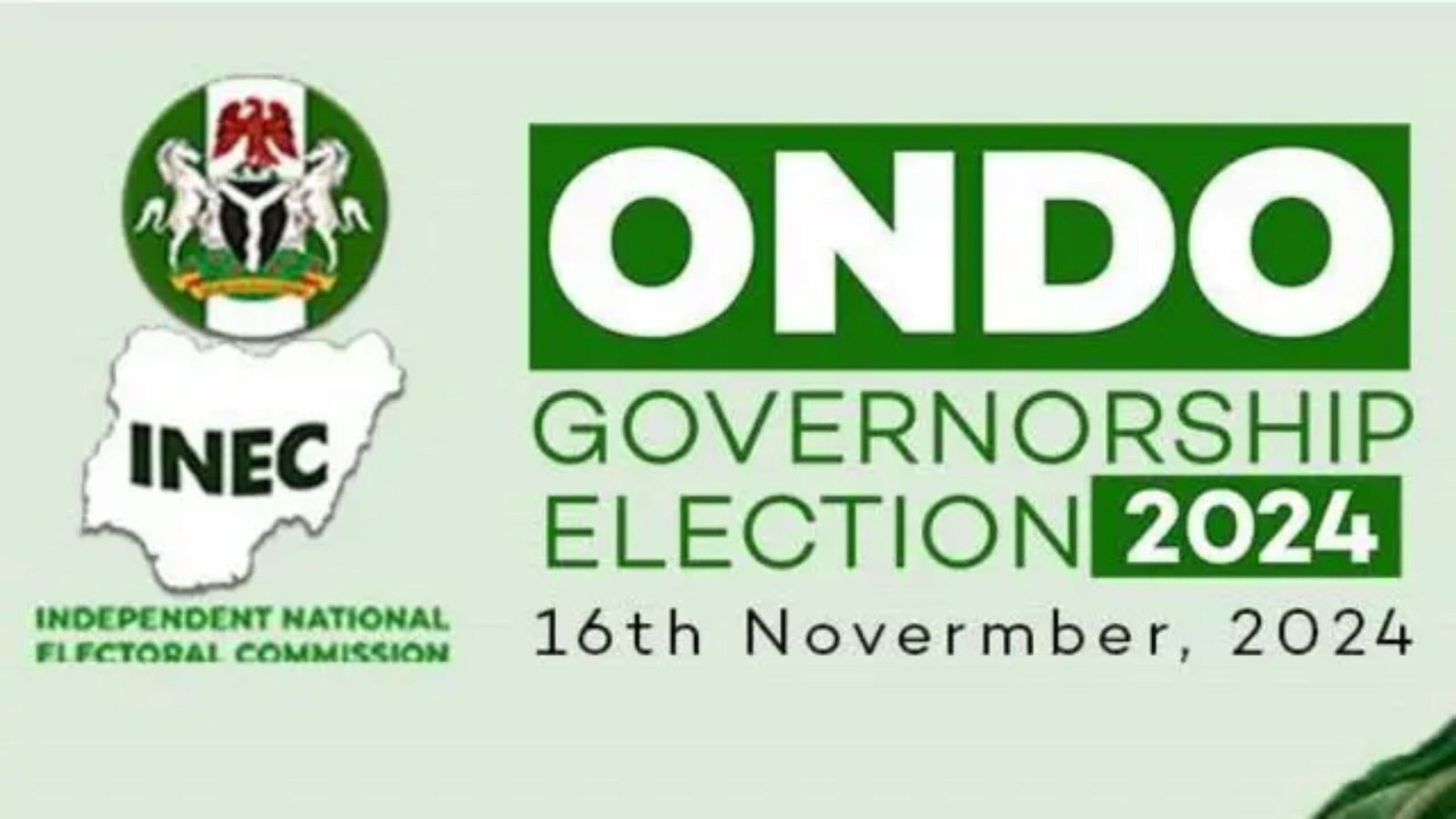
Ondo Election: Currency Challenges, Security Concerns, and the Path Forward
The Ondo State gubernatorial election is garnering significant attention as both a major democratic event and a litmus test for Nigeria’s political and economic resilience. With the currency situation, security challenges, and logistical issues casting a shadow over the election process, the Ondo election has become a focal point of national discourse. This blog explores these pressing concerns and analyzes how they impact both the election process and Nigeria’s democratic landscape.
Background of the Ondo Gubernatorial Election
As a critical election in southwestern Nigeria, the Ondo gubernatorial race involves high-stakes competition between major political parties like the All Progressives Congress (APC) and the People’s Democratic Party (PDP), as well as other emerging political players. The election is particularly important for several reasons:
- Political Significance: The Ondo election is seen as a referendum on the ruling party’s performance and will indicate whether the opposition parties are gaining momentum, especially as the country heads toward general elections.
- Economic Implications: Ondo is known for its contributions to Nigeria’s agricultural output, particularly in cocoa, palm oil, and other cash crops. Therefore, stable governance is crucial to sustaining economic productivity.
- Symbol of National Stability: The election is also being closely watched as a test of Nigeria’s electoral integrity, democratic maturity, and security management.
Currency Crisis: How Cash Shortages are Affecting the Ondo Election
One of the most challenging aspects of the Ondo election is the currency crisis. Due to a series of policies from the Central Bank of Nigeria (CBN), including the recent currency redesign and limited cash availability, Nigerians have been grappling with cash shortages. This has led to economic hardship, with many citizens struggling to meet basic needs, and has had significant implications for the election process.
1. Challenges for Campaign Financing
Campaigning is an expensive endeavor, requiring funds for events, voter outreach, and other mobilization activities. The cash shortage has affected the ability of political parties and candidates to finance their campaigns. Limited cash availability has constrained political parties in Ondo, particularly for smaller parties with less access to digital payment infrastructure and limited financial backing.
2. Impact on Voter Mobilization
Many Nigerians rely on cash for daily transactions, including transportation. With the cash crunch, some voters may find it difficult to travel to polling centers, particularly those in rural areas where mobile and digital banking options are less accessible. This could potentially lead to lower voter turnout, especially among lower-income voters who do not have the resources to overcome the transportation barriers created by the cash shortage.
3. Risk of Vote-Buying and Electoral Manipulation
The cash scarcity has also reshaped vote-buying dynamics, which has long been an issue in Nigerian elections. While the scarcity of cash could theoretically reduce the ease with which votes are bought, it has, in some cases, led to inventive ways of inducement, including the distribution of food, clothing, and other essential items in place of cash. This adaptation underscores the pervasive influence of poverty and economic hardship on the democratic process, as well as the ongoing challenges of electoral transparency.
Security Concerns: Protecting the Electoral Process in Ondo
Security has been another major consideration in the Ondo election. Given the tensions surrounding the election and Nigeria’s wider security issues, such as insurgency, kidnapping, and ethnic violence, safeguarding the electoral process has become a top priority. The Independent National Electoral Commission (INEC) and security agencies have been working together to ensure a safe voting environment, but several challenges remain.
1. Deployment of Security Personnel
To prevent violence and ensure peaceful voting, thousands of security personnel from the Nigeria Police Force, Civil Defense, and other security agencies have been deployed across Ondo. INEC has been coordinating with the security agencies to establish a robust presence at polling units, particularly in identified hotspots where electoral violence is more likely.
The heavy security presence is intended to deter election-related violence and ensure that voters feel safe enough to participate. However, there is a delicate balance between maintaining security and creating an intimidating atmosphere that could discourage voter turnout. In some cases, past elections have seen over-militarization, leading to voter apprehension and the perception of undue influence by the state.
2. Managing Electoral Violence and Thuggery
Electoral violence and thuggery have historically posed a threat to Nigeria’s democratic process. In Ondo, there have been reported incidents of politically motivated violence, including attacks on party members and disruptions of campaign rallies. As election day approaches, security agencies are on high alert to prevent such incidents from escalating.
INEC has identified potential violence-prone areas and has designated security measures to counter these risks. This includes restricting movement in certain areas on election day, conducting regular patrols, and setting up checkpoints in key locations. Nevertheless, the effectiveness of these measures will ultimately depend on the ability of security personnel to act impartially and prevent interference with the democratic process.
3. Addressing the Threat of Insurgency and Kidnapping
Beyond election-specific violence, Ondo State is affected by wider security threats, such as kidnappings and clashes between farmers and herders. In recent years, kidnappings for ransom have become a significant issue in Nigeria, affecting both rural and urban communities. The presence of these threats poses a unique challenge for the election, as people may be reluctant to travel to polling stations, especially those located in remote or less secure areas.
To counter these risks, security agencies have intensified patrols along major highways, rural areas, and polling locations in areas with a history of insurgency or kidnapping incidents. Ensuring the safety of voters and election workers is critical for a fair and free election, but it also adds considerable complexity to the overall security strategy for the election.
Logistics and Infrastructure Challenges
Beyond currency and security issues, logistics remain a critical component in ensuring a smooth election process. INEC has been working to address logistical hurdles, but limited resources, poor infrastructure, and inadequate planning could still pose risks to the integrity of the election.
- Availability of Voting Materials: INEC has expressed concerns over the timely delivery of voting materials, particularly in remote areas with difficult terrain. Delays in delivering voting materials could lead to frustration among voters and even disenfranchise some, undermining the election’s legitimacy.
- Polling Station Infrastructure: Many polling stations in Ondo, especially in rural communities, lack adequate facilities, including shade, seating, and restrooms, which could make the voting experience uncomfortable, especially for elderly voters or those with disabilities.
- Training and Deployment of Electoral Officers: The recruitment and training of ad-hoc staff, including presiding officers, polling clerks, and returning officers, are essential for a successful election. These officers must be adequately trained in operating biometric verification systems, managing voter queues, and adhering to INEC’s election guidelines. However, limited resources have affected training quality and the retention of experienced personnel.
Technology and Biometric Voting: Reducing Fraud and Enhancing Transparency
For the Ondo election, INEC has integrated more advanced technology to improve transparency and minimize fraud. The use of the Biometric Voter Accreditation System (BVAS) has become a cornerstone of Nigeria’s electoral reform efforts.
BVAS verifies voters’ identities through fingerprints and facial recognition, which helps reduce instances of voter impersonation and multiple voting. By deploying this technology, INEC aims to improve the election’s credibility and minimize irregularities. However, the effectiveness of these technologies is dependent on reliable electricity and stable internet connections, which can be challenging to maintain in remote parts of Ondo.
International and Local Election Observers
The presence of international and local election observers can play a critical role in ensuring the election’s transparency and adherence to democratic principles. Observers are responsible for monitoring polling units, verifying compliance with electoral laws, and reporting any irregularities. In the case of Ondo, both the African Union and ECOWAS have deployed observation teams, while local NGOs and civil society groups are also monitoring the election closely.
Observers also play an important role in boosting voter confidence. Their presence provides a layer of accountability that reassures the public and helps validate the election results. Their findings and reports post-election can further influence electoral reforms, especially if they highlight specific irregularities or areas for improvement.
Conclusion: A Test of Nigeria’s Democratic and Economic Resilience
The Ondo gubernatorial election is much more than a regional contest—it’s a test of Nigeria’s ability to conduct credible elections under challenging circumstances. With currency shortages, security risks, logistical hurdles, and the ever-present issue of vote-buying, the election presents a complex set of challenges for INEC, security agencies, and the Nigerian government at large.
Successfully navigating these challenges will depend on strong coordination between electoral bodies, security forces, and political parties, as well as transparency and accountability from all stakeholders. While the currency crisis and security issues may initially appear to hinder democratic processes, they also provide an opportunity for Nigeria to improve its electoral infrastructure, enhance security strategies, and bolster public trust.
Ultimately, the Ondo election could serve as a learning experience and a precursor to reforms that improve future elections across Nigeria. The Nigerian government and citizens alike will be watching closely, hoping for an outcome that not only reflects the will of the people but also strengthens the foundations of Nigeria’s democracy.








Peaceful Ondo election🗳️